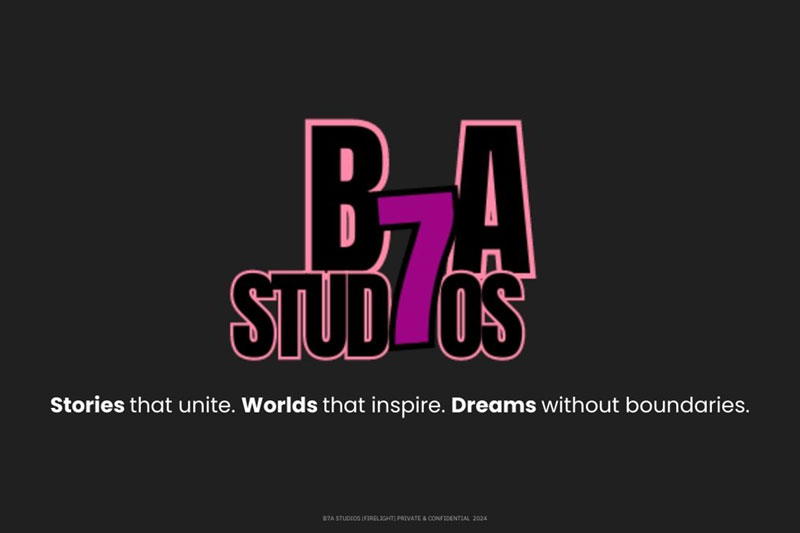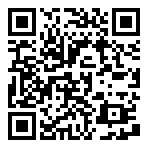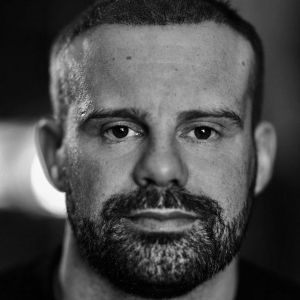
Creating a Pitch Deck
Introduction
Facilitators: Brett Neal & Ashley Grant
Turn your ideas into industry-ready pitches with this essential workshop on crafting professional pitch decks. Learn how to structure a compelling presentation that captures the attention of producers and investors. Through expert guidance, you’ll design a visually engaging deck, refine your storytelling, and practice delivering a confident, concise pitch. Get real-time feedback and leave with the skills to sell your story with impact!
Workshop Description
A great idea is only the first step—knowing how to pitch it effectively is what sets successful creators apart. This hands-on workshop is designed to equip participants with the skills and confidence needed to craft professional pitch decks that captivate producers, investors, and decision-makers in the entertainment industry. Facilitated by Brett Neal and Ashley Grant, this session will break down the essentials of creating a compelling, visually engaging, and market-ready pitch deck that sells your story with impact.
The workshop will start by helping participants understand the purpose of a pitch deck, exploring what producers and investors look for and how to communicate ideas effectively. Participants will learn the key components of a strong pitch, including a compelling synopsis, audience breakdown, budget considerations, and visual storytelling elements. They will also discover how to use design techniques to enhance the presentation and ensure their ideas stand out.
Once the fundamentals are covered, attendees will move into the practical stage, where they will begin creating their own draft pitch decks based on the stories and IPs they developed in Day 2’s workshop. This interactive approach allows participants to apply their learning immediately, refining their ability to present concisely and persuasively. They will practice pitching their projects in front of the group, developing confidence and clarity in their delivery.
The session will conclude with a feedback and refinement process, where participants will receive peer and facilitator reviews on their pitch decks. Facilitators will provide expert advice on improving clarity, impact, and presentation techniques, ensuring that each attendee leaves with a polished pitch deck and the skills to present it successfully in real-world industry settings. This workshop is ideal for beginner to intermediate-level creatives looking to elevate their pitching abilities and gain a competitive edge in the entertainment industry.
Module 1
A great pitch deck is more than just a slideshow—it’s a strategic storytelling tool designed to capture the attention of investors, producers, and decision-makers. In this module, participants will gain insight into the purpose and function of a pitch deck, learning what industry professionals look for when evaluating a project. Understanding these expectations is crucial for crafting a pitch that is not only compelling but also market-ready.
The session will break down the key components of a strong pitch deck, including how to effectively communicate the core concept, target audience, visual style, and financial viability of a project. Participants will explore how to present their ideas in a way that is both clear and engaging, ensuring that their vision is understood and appreciated by potential backers.
Through case studies and real-world examples, attendees will analyze successful pitch decks, identifying the techniques that make them stand out. They will also learn how to tailor their pitch decks to different audiences, whether they are speaking to a producer, investor, or distributor. By the end of this module, participants will have a solid understanding of what makes a persuasive and industry-ready pitch deck, setting the stage for the next step—designing their own.
Module 2
A successful pitch deck is not just about words—it’s about visual storytelling. In this module, participants will learn how to design a pitch deck that enhances their story, captivates audiences, and clearly conveys the vision of their project. By leveraging visuals effectively, creators can leave a lasting impression on producers and investors, making their ideas more engaging and memorable.
The session will focus on structuring slides for maximum impact, ensuring that each section of the deck flows naturally and provides essential information in a clear and concise way. Participants will explore how to organize their slides, covering key elements such as the project synopsis, visual style, audience demographics, budget considerations, and unique selling points. Facilitators will share best practices for keeping pitch decks concise yet compelling, striking the right balance between creative expression and professional presentation.
Through hands-on guidance, attendees will also learn how to use images, concept art, and other visual elements to strengthen their pitch. They will explore how to make design choices that support their storytelling rather than distract from it. By the end of this module, participants will have the tools and techniques needed to create a visually striking and well-structured pitch deck that can effectively communicate their project’s potential to industry decision-makers.
Module 3
A well-crafted pitch deck is only as effective as the way it is presented. In this module, participants will put their knowledge into action by creating draft pitch decks based on the stories and intellectual properties they developed in the previous workshop. This hands-on session is designed to help them structure their ideas into a cohesive, professional presentation while also preparing them to deliver their pitch with confidence and clarity.
Participants will work on refining their decks, ensuring that their key message is clear, their slides are visually engaging, and their overall presentation flows naturally. They will be encouraged to focus on concise and impactful storytelling, emphasizing the elements that will resonate most with investors, producers, or stakeholders. Facilitators will provide guidance on tone, pacing, and engagement techniques, helping participants craft pitches that feel authentic and persuasive.
Once their draft decks are ready, attendees will practice delivering their pitches in front of the group. This real-time presentation experience allows them to build confidence, refine their communication skills, and receive immediate feedback on their delivery. By the end of this module, participants will have not only a structured and polished pitch deck but also the ability to present it effectively in high-stakes industry settings.
Module 4
Refining a pitch is an ongoing process, and receiving constructive feedback is essential to making it as effective as possible. In this final module, participants will present their pitch decks for peer and facilitator reviews, gaining valuable insights into how their presentation is perceived and how it can be improved. This interactive session is designed to simulate a real-world pitching environment, allowing attendees to experience the dynamics of delivering a pitch in front of an audience.
Facilitators will provide expert feedback on clarity, storytelling effectiveness, and overall presentation quality, helping participants identify areas for improvement. Peers will also have the opportunity to share their perspectives, offering fresh insights and alternative viewpoints. This collaborative approach allows participants to refine their message, sharpen their delivery, and ensure their pitch is both compelling and industry-ready.
As part of this session, attendees will make final adjustments to their pitch decks based on the feedback they receive. Facilitators will also share professional tips on how to adapt pitches for different audiences, handle tough questions, and maintain confidence in high-pressure situations. By the end of this module, participants will have a fully refined pitch deck and the presentation skills needed to confidently pitch their ideas to producers, investors, and decision-makers in the entertainment industry.
What Should Students Bring?
Notebook & Pens/Pencils – For jotting down ideas, taking notes, and sketching story structures.
Laptop or Tablet (Optional) – Useful for typing outlines, researching references, or organizing notes digitally.
Printed or Digital Story Ideas (If Available) – If students have existing ideas or drafts, they can bring them for discussion and feedback.
Reference Material (Optional) – Any books, scripts, or articles that inspire their storytelling approach.
Open Mind & Creativity – A willingness to brainstorm, collaborate, and receive constructive feedback.
Water & Snacks (Optional) – To stay refreshed and focused throughout the session.
- Duration 2 hours 30 minutes


